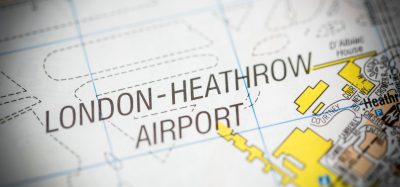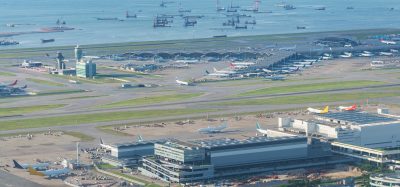Shift to SAF could “turbocharge” the green economy
- Like
- Digg
- Del
- Tumblr
- VKontakte
- Buffer
- Love This
- Odnoklassniki
- Meneame
- Blogger
- Amazon
- Yahoo Mail
- Gmail
- AOL
- Newsvine
- HackerNews
- Evernote
- MySpace
- Mail.ru
- Viadeo
- Line
- Comments
- Yummly
- SMS
- Viber
- Telegram
- Subscribe
- Skype
- Facebook Messenger
- Kakao
- LiveJournal
- Yammer
- Edgar
- Fintel
- Mix
- Instapaper
- Copy Link
Posted: 8 July 2024 | Emily Budgen | No comments yet
The new government mandate for an SAF shift could “turbocharge” the economy. A new plant is set to open in Sunderland, England.


The UK Government’s plan to ensure 10% of jet fuel used in flights departing the UK comes from Sustainable Aviation Fuel (SAF) by 2030 could increase the nation’s green economy. The SAF mandate, which was unveiled last month and is pending parliamentary approval, is set to become law in January 2025 – a pioneering initiative in sustainable aviation.
The challenge, however, is that there is insufficient SAF feedstock and skyrocketing demand, which exceeds both present and projected supply. Currently, the total global SAF supply stands at no more than 2 million metric tons (mt), while demand for SAF is growing at a 45% compound annual growth rate (CAGR): More than 40 airlines have already publicly committed to using around 13 million mt of SAF by 2030. For the government’s SAF mandate to be achieved, cost-effective solutions must be introduced to the market.
This is the view of Vianney Vales, the CEO of Wastefront AS, the Norwegian company building an industry-leading, fully circular, Waste-to-Fuel business in the North East of England.
Wastefront is on a fast track pathway to produce ultra-low-cost SAF, by converting waste tyres into tyre derived oil (TDO), and subsequently processing TDO into SAF. The first commercial plant, which is shovel-ready and set to begin construction at the Port of Sunderland, will be one of Europe’s largest Waste-to-Fuel facilities, starting TDO production in 2026.
In addition to addressing the SAF supply issue, Wastefront also tackles waste tyre pollution. Once at full capacity, the plant in Sunderland will process up to 10 million waste tyres per year, preventing them from ending in landfills or being incinerated.
Vales said: “The SAF mandate is hugely significant for the UK aviation industry and a clarion call for the North East. Working alongside our partners at the Port of Sunderland, we are on a pathway to bring ultra-low-cost sustainable aviation fuels to market. With production expected to commence in 2026, our plant in Sunderland will be leading a new generation of pathways to clean transport fuels. Not only do we aid the UK’s transition to sustainable air travel, we also address the growing problem of waste tyres in the UK. Our facility represents a significant investment in the region and will create scores of highly skilled jobs.”
Wastefront’s first commercial plant in Sunderland is fully permitted and expected to start construction in 2024. The first phase of the plant will be fully operational by 2026, while the second phase is expected to be on stream in 2027. The TDO produced in Sunderland will first be co-processed into road transport fuel or SAF in third-party refineries. At a later stage, it will be converted into SAF in dedicated facilities.
One of the primary advantages of SAF is its potential to significantly reduce lifecycle carbon emissions compared to traditional aviation fuels. The SAF produced by Wastefront will cut lifecycle carbon emissions by more than 80%.
“We are creating an entirely new circular economy and we are starting it in the UK, and specifically in the North East.” Vales added.
“The UK is a global industrial hub which we want to be a part of, offering strong mandates in our area of Energy Transition. Sunderland was the ideal location for our first plant due to geographical location, access to feedstock, strong local support, and an incredibly skilled workforce. We are proud to help make the North East a real powerhouse in sustainable transport development.”
Matthew Hunt, director at Port of Sunderland, said: “The production of sustainable aviation fuel opens significant opportunities for the North East.
“The market for sustainable fuels is already a multi-billion pound industry, and with the mandate soon becoming legislation, demand is only going to continue growing. Wastefront’s facility at the port will position the North East perfectly to fully capitalise on this growth.
“It’s an incredibly exciting time for everyone involved, and we are delighted to be contributing to the UK’s ever-growing green economy.”
More Like This
Avinor Group renews F&B concepts at Oslo Airport, Norway
New research on public perception of drone technology
ACI EUROPE reveals Best Airport Award winners for 2024
Related topics
Social responsibility, Sustainability, Sustainable Aviation Fuel (SAF), Sustainable development


















